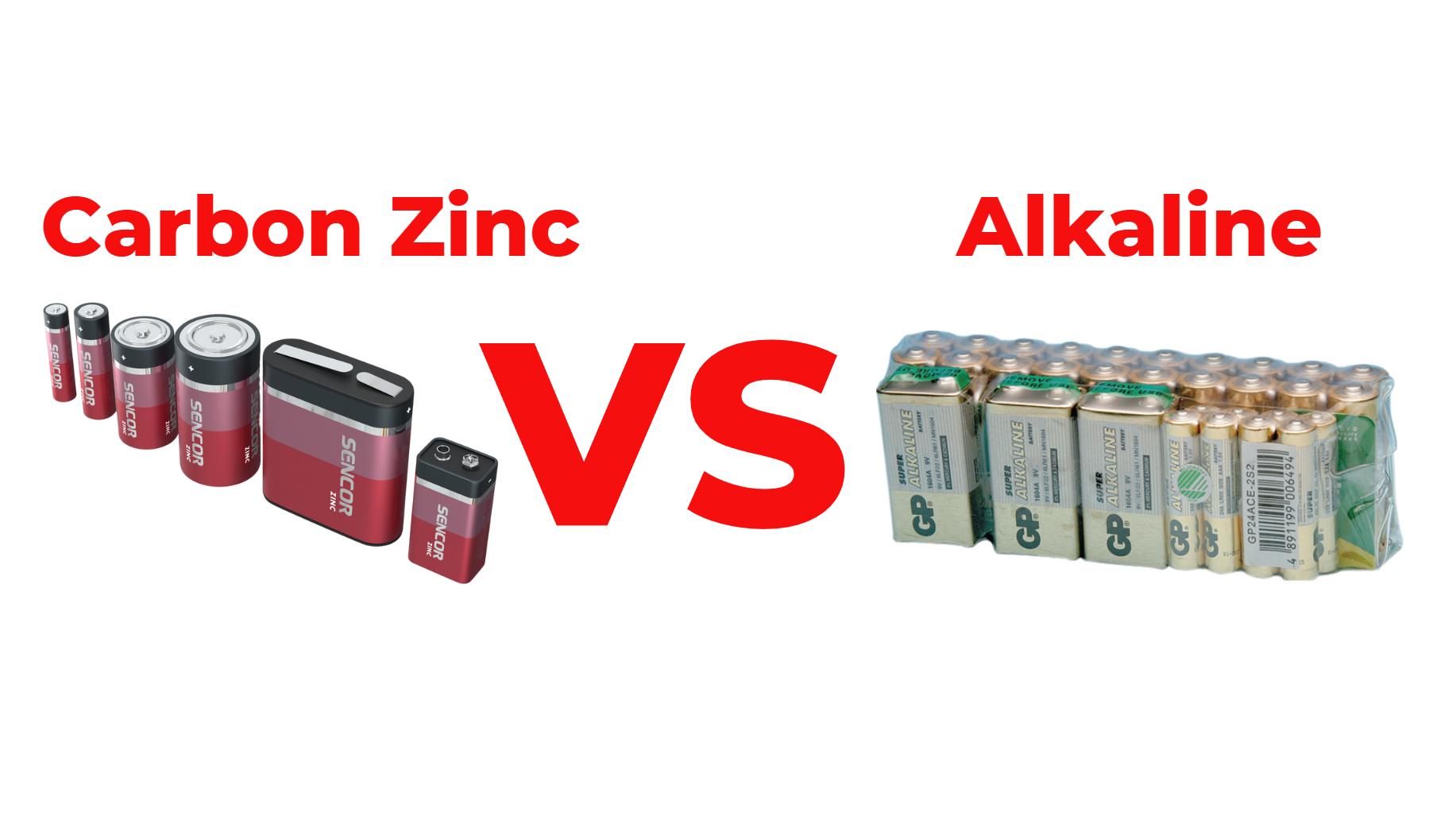
How Do Carbon Zinc Batteries Compare to Alkaline Batteries?
Carbon zinc batteries and alkaline batteries are two common types of batteries used in various applications. While both serve similar purposes, they have distinct differences in performance, lifespan, and environmental impact. Understanding these differences can help you choose the right battery for your needs.
What Are the Main Differences Between Carbon Zinc and Alkaline Batteries?
The main differences include the type of electrolyte used: carbon zinc batteries utilize an acidic electrolyte, while alkaline batteries use an alkaline electrolyte. Alkaline batteries generally offer higher energy density, longer lifespan, and better performance in high-drain applications compared to carbon zinc batteries, which are suited for low-drain devices. Chart: Comparison of Battery Characteristics
| Feature | Carbon Zinc Batteries | Alkaline Batteries |
|---|---|---|
| Electrolyte | Ammonium chloride | Potassium hydroxide |
| Energy Density | Lower (typically 4-5 times less than alkaline) | Higher |
| Lifespan | 1-2 years | Up to 8 years |
| Discharge Rate | Unsuitable for high-rate applications | Suitable for high-rate applications |
| Environmental Impact | Contains heavy metals | Generally more environmentally friendly |
How Do Energy Density and Capacity Compare in These Batteries?
Alkaline batteries have a significantly higher energy density, typically 4-5 times that of carbon zinc batteries. Their capacity ranges from 1,000 to 2,800 mAh, whereas carbon zinc batteries usually range from 400 to 1,000 mAh, making alkaline batteries more suitable for demanding applications. Chart: Energy Density Comparison
| Battery Type | Energy Density (Wh/kg) |
|---|---|
| Carbon Zinc | 60-80 |
| Alkaline | 150-300 |
This significant difference means that alkaline batteries can power devices longer before needing replacement.
What Are the Discharge Characteristics of Carbon Zinc and Alkaline Batteries?
Carbon zinc batteries are not suitable for high-rate discharge applications, as their power output decreases quickly under heavy loads. In contrast, alkaline batteries maintain a more stable discharge rate and perform well in high-drain devices like digital cameras and toys.
Chart: Discharge Profiles
| Battery Type | Voltage Over Time |
|---|---|
| Carbon Zinc | Gradual decline |
| Alkaline | Stable until near depletion |
This stability in alkaline batteries makes them ideal for long-term use in devices that demand consistent performance.
How Does Shelf Life Impact the Use of Each Battery Type?
Shelf life significantly impacts usability; alkaline batteries can last up to 7-10 years, while carbon zinc batteries typically last 1-3 years. Longer shelf life for alkaline batteries makes them more reliable for devices that may be used infrequently.
Chart: Shelf Life Comparison
| Battery Type | Shelf Life |
|---|---|
| Carbon Zinc | 1-2 years |
| Alkaline | Up to 8 years |
Longer shelf life means fewer replacements and lower costs over time.
What Environmental Considerations Should Be Made for Each Battery?
Carbon zinc batteries contain heavy metals such as mercury and cadmium, posing environmental risks if not disposed of properly. Alkaline batteries are generally considered more environmentally friendly as they do not contain these harmful substances and are easier to recycle.
Chart: Environmental Impact
| Battery Type | Heavy Metals Present | Disposal Considerations |
|---|---|---|
| Carbon Zinc | Yes | Requires special disposal |
| Alkaline | No | Can be disposed with regular waste |
Choosing alkaline batteries can help reduce environmental harm when properly disposed of.
What Are the Best Applications for Carbon Zinc vs. Alkaline Batteries?
Carbon zinc batteries are best suited for low-power devices like remote controls and clocks, while alkaline batteries excel in high-drain applications such as digital cameras, toys, and portable electronics, where sustained power is essential. The choice between carbon zinc and alkaline batteries largely depends on the application:
- Carbon Zinc: Best suited for low-drain devices such as clocks, remote controls, and toys that do not require sustained power.
- Alkaline: Ideal for high-drain devices like digital cameras, gaming controllers, and flashlights where longer life and higher energy output are necessary.
Understanding your device’s power requirements will help you select the appropriate battery type.
FAQ Section
Q: Which battery lasts longer, carbon zinc or alkaline?
A: Alkaline batteries typically last longer than carbon zinc batteries, with lifespans up to 8 years compared to 1-2 years for carbon zinc.Q: Can I use carbon zinc batteries instead of alkaline?
A: While you can use carbon zinc batteries in some cases, they are not recommended for high-drain devices due to their lower energy density and shorter lifespan.Q: Are alkaline batteries more environmentally friendly than carbon zinc?
A: Yes, alkaline batteries do not contain harmful heavy metals like mercury or cadmium found in carbon zinc batteries, making them a better environmental choice.
OEM Tips
When selecting OEM parts or replacements for your battery needs, consider sourcing from reputable manufacturers like Redway Battery. Known for their high-quality lithium battery products, Redway offers alternatives that outperform traditional lead-acid options in terms of lifespan and efficiency. To make OEM orders effectively:
- Research reliable suppliers with positive reviews.
- Ensure compatibility with your specific device requirements.
- Look for warranties or guarantees on products.
Investing in quality OEM products can enhance your device’s performance while ensuring sustainability.
LiFePO4 Battery Expert Views
“Choosing the right battery type is crucial not only for performance but also for environmental impact,” states Dr. Sarah Lee, a battery technology expert. “Alkaline batteries provide superior longevity and efficiency compared to carbon zinc options, making them ideal for modern electronic devices.”
Alkaline vs Carbon Zinc
Alkaline batteries offer higher energy density, longer lifespan, and better performance in high-drain devices compared to carbon-zinc batteries. While alkaline batteries can last up to 8 years, carbon-zinc batteries typically last 1-2 years. Alkaline batteries are also more environmentally friendly, lacking harmful heavy metals found in carbon-zinc batteries.
